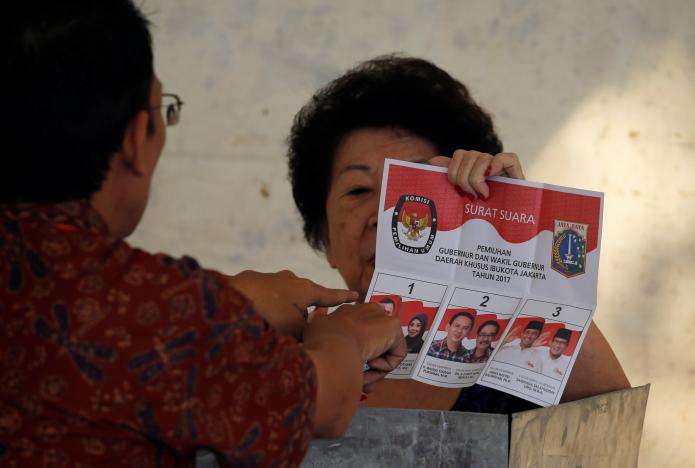A big part of what made Wednesday’s election loss for Jakarta Governor Basuki “Ahok” Tjahaja Purnama so devastating to so many of his supporters is that the last round of surveys before the election indicated that Ahok and his challenger (and now future governor), Anies Baswedan, had been running at a statistical dead heat. After the first round, many had predicted Ahok had little chance of winning the runoff since the perceived wisdom was that all of third-place-finisher Agus Yudhoyono’s votes would go to Anies (which is basically what actually happened), but the late tightening of the polls gave the impression that Ahok had a fighting chance going into Wednesday – which clearly proved not to be true.
So why the huge discrepancy between the last pre-runoff vote surveys, many of which showed Ahok and Anies within 1-3 percentage points of one another, and the actual quick count results, most of which showed Anies getting about 16 percentage points more than Ahok?
Political pollster and analyst Saiful Mujani of Saiful Mujani Research and Consulting (SMRC), whose last pre-election survey had Ahok at 46.9% and Anies at 47.9%, noted that there were 5.2% of respondents who said they were undecided, but also many more people his group attempted to reach but who did not respond.
Saiful believes one of the main factors in the survey-vote discrepancy was that many of Jakarta’s educated, middle-class voters were voting on the basis of religion but did not want to tell that to surveyors.
“But when they were in the polling stations, they did not have any obstacles to declare their choice on the grounds of religion, and it was seen in some of the sentiment that fueled their internal reasoning,” Saiful said, as quoted by Liputan 6.
As proof of this, Saiful pointed to exit polling conducted by SMRC, which showed that just about 1 out of every 3 people who voted for Anies did so primarily on the basis of religion (whereas the majority of Ahok voters chose him on the basis of his proven work record).
yg milih karena agama bukannya gak signifikan sebagaimana survey ini? pic.twitter.com/unnv8Bj72i
— Hermawans (@hsdby) April 21, 2017
Saiful shared an anecdote on Twitter he felt summarized the sentiment fueling the “hidden” Anies vote.
Ada yg bikang gini: ahok banyak berhasil mengurangi banjir. Tapi saya lebih takut neraka dari pd banjir.😅
— saiful mujani (@saiful_mujani) April 21, 2017
There was one who put it this way: Ahok managed to greatly reduce the floods. But I am more afraid of hell than floods.
Many in the United States were similarly shocked by how far off the polls were compared to the actual election result that earned Donald Trump his victory in November. Some analysts there thinks emotion and fear of stigma might have led respondents to mislead pollsters on purpose, and it seems something similar might have happened in Jakarta.





Reader Interactions